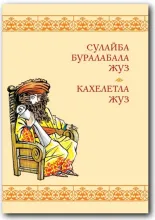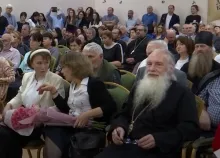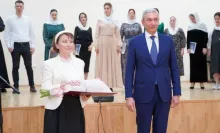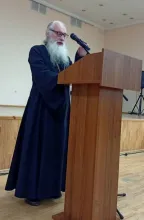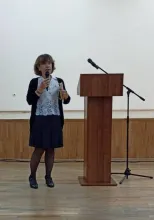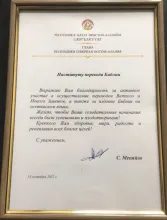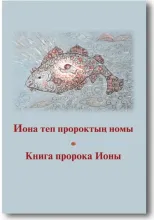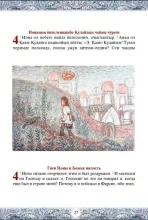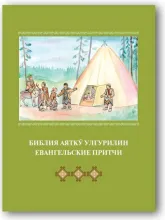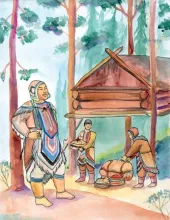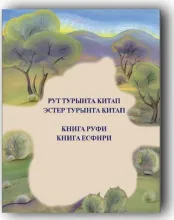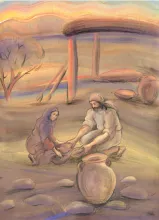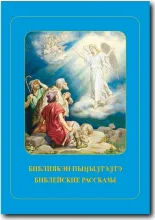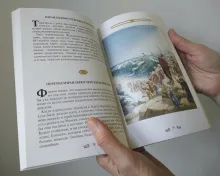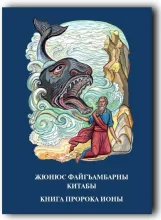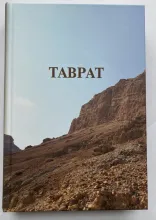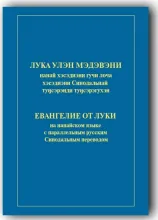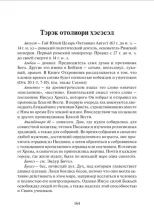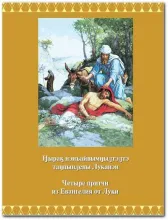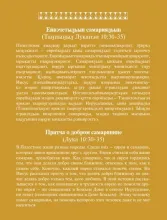news-04102022
The Institute for Bible Translation (IBT) has released a new publication in Dargi, one of the official languages of the Republic of Dagestan in the Russian Federation. Newspapers, journals, and books are published in this language, and it is studied in school in areas with a large Dargi population. There are altogether about 485,000 speakers of Dargi in Russia.
news-20092022
The presentation of the Bible translated into the Ossetic language was held at the National Scientific Library of the Republic of North Ossetia-Alania in Vladikavkaz on September 20, 2022. This is the first ever complete translation of the Bible into the Iron variant of the Ossetic language, spoken by five-sixths of the Ossetic population (about 600,000 people). This publication is combined the New Testament translated by the Institute for Bible Translation and the Old Testament translated by the Bible Society in Russia. This work took 25 years overall.
news-02092022
The Shors are a minority indigenous people who live in the south of Kemerovo Region (in the Novokuznetsk and Tashtagol areas of Russia) and beyond. According to the 2010 census, they number about 13,000 people. The written alphabet was created in 1927 based on the Russian script. Since that time, a number of school grammars, textbooks, primers, books for reading, several translations of classical Russian literature and a district newspaper were published.
news-07072022
IBT’s Evenki Bible translation project continues with the release of the Gospel Parables edition. I's the seventh IBT Scripture publication in the Evenki language. Previously published works include: excerpts from the Gospel of Luke (1995); Jesus - Friend of Children with a parallel Russian translation (1999); the Gospel of Luke (2002); the Children’s Bible (2011); the Gospel of Luke with a parallel Russian translation (2013), and the book of Jonah with a parallel Russian translation (2018).
news-10062022
As part of the Siberian Tatar Bible translation project, IBT has published a new edition containing two Old Testament books: Ruth and Esther, the only two books of the Bible named after women. Previously, IBT had published the book of Jonah (2019) and Gospel Parables (2020) in Siberian Tatar.
The Siberian Tatar translation is accompanied by a parallel Russian text. The edition is illustrated with color pictures by Yakut artist Maria Adamova, who previously illustrated the book of Jonah. This book, as well as previous editions in the Siberian Tatar language, can be found in the electronic publications section of the IBT website.
news-12052022
IBT has published "Bible Stories" in the Chukchi language together with a parallel Russian text. “Bible Stories” is a collection of 58 narrative passages recounting the major Bible events, from the creation of the world to the book of Acts. “Bible Stories” introduces the reader to the world of Scripture and is facilitated by color illustrations for each story.
The Chukchi language belongs to the Paleo-Asiatic language family, and is spoken primarily in the far east of Russia. According to the 2010 census, the Chukchi numbered just under 16,000, with only 4,563 (29%) indicating that they spoke the language. Newspapers, fiction, grammars, dictionaries, and textbooks have been published in Chukchi, but the standardized literary Chukchi language is still in the process of formation. The translation of biblical texts will undoubtedly contribute to its development. The Chukchi Bible translation project stands out among IBT’s northern projects due to the remoteness of the region and the scattered status of the translation team throughout the territory of Russia and other countries...
news-28022022
The Institute for Bible Translation (IBT) continues to publish the books of the Old Testament in the Balkar language. The Balkars are a Turkic-speaking people that lives primarily in the central part of the North Caucasus, with a population of about 113,000 people, according to the 2010 census.
The book of the prophet Jonah is the second Old Testament edition in the Balkar language published by IBT. In 2020, IBT published a Balkar edition of Ruth, Esther and Daniel. Jonah was printed as a large hardcover edition with colorful illustrations by I. Pavlishina that had previously been used in the publications of Jonah in various other languages and were well accepted by readers of different ethnicities...
news-21012021
The first five books of the Old Testament, also known as the Pentateuch or the Mosaic Law, have been published for the first time ever in the Kumyk language. Kumyk belongs to the Kipchak group of Turkic languages. With about half a million speakers, Kumyk is one of the larger languages of Dagestan and is also spoken in northeast Chechnya and the Mozdok District of North Ossetia.
The translation team headed by the Institute for Bible Translation included experts in the Kumyk language as well as biblical scholars and linguists. The text was peer-reviewed and approved for publication by the Dagestan Research Centre of the Russian Academy of Sciences...
news-19112021
IBT has published the third, revised edition of the Gospel of Luke in Nanai, a minority language spoken primarily in the Far East of the Russian Federation. According to the 2010 census, there are 11,671 Nanai people, but only 1,400 of them speak the Nanai language. The language belongs to the southern group of Tungusic languages and is listed in the UNESCO Red Book as endangered. Nanai language enthusiasts, who want to hold on to their cultural heritage for future generations, are greatly concerned about the fate of their language and are trying to preserve it, and Bible translation into Nanai helps accomplish this goal.
The first complete translation of Luke into Nanai language was published by IBT in 2002, reprinted in 2005, then reprinted again in 2012 as a bilingual edition with a parallel Russian text. This first translation was produced by A.V. Stolyarov, a language scholar from St. Petersburg specializing in Nanai.
news-11112021
IBT has published a new book in Chukchi, a Paleo-Asiatic language spoken in the extreme northeastern part of Siberia along the coast of the Arctic Ocean. According to the 2010 census there are around 16,000 ethnic Chukchis, but only about 5,000 indicated that they speak their native language. Therefore Gospel Parables was published as a bilingual edition together with the Russian text of these Scripture passages.
The book includes four parables from Luke's Gospel: The Prodigal Son (Luke 15:11-32), The Good Samaritan (Luke 10:30-35), The Invitation to the Feast (Luke 14:16-24) and The Pharisee and The Tax Collector (Luke 18:10-14). Over the centuries these parables have been told and retold in different languages in various parts of the world. And now they are available in Chukchi...

